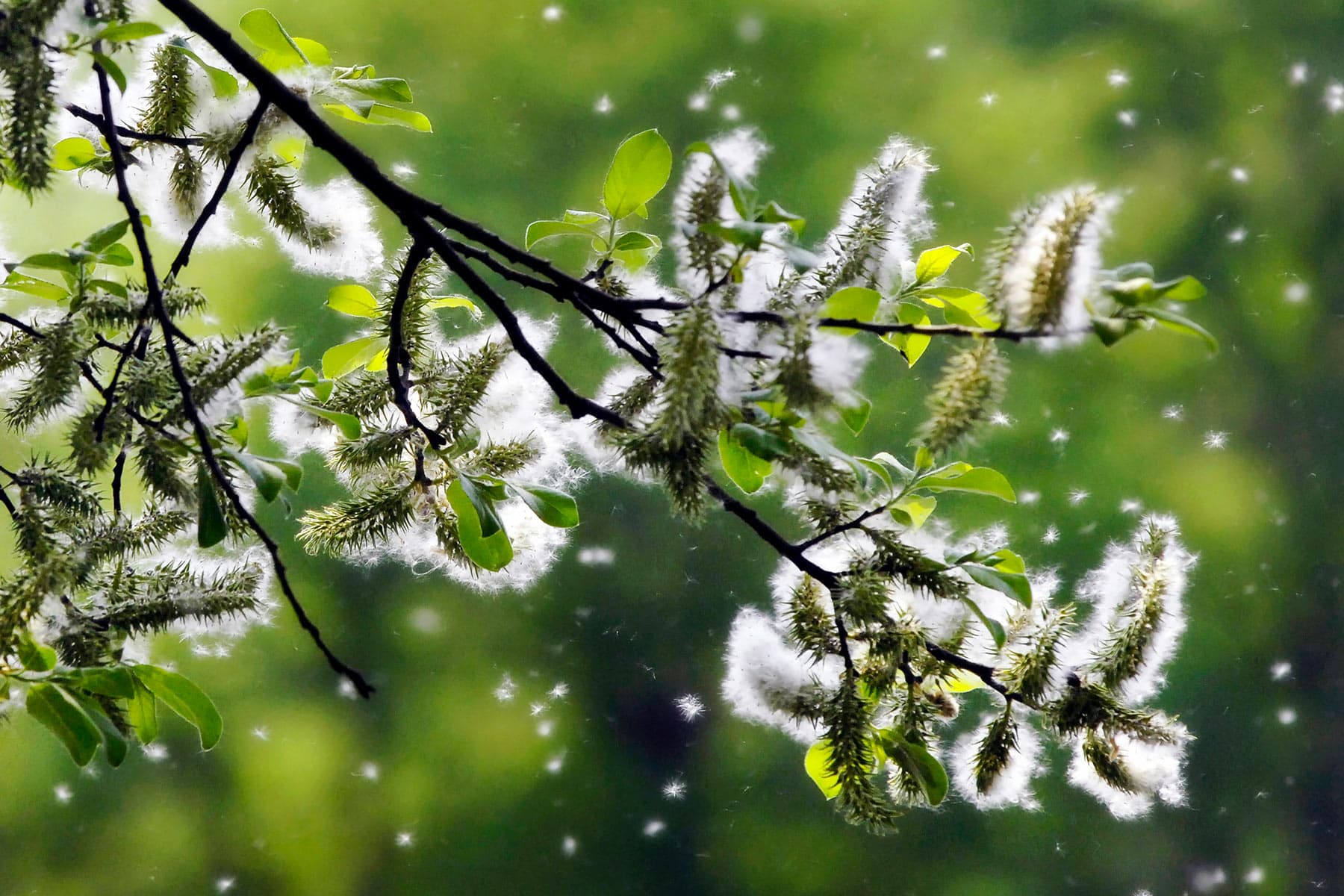Climate change may exacerbate pollen seasons: study
💕
March 16, 2022 — Climate change is already making allergy seasons longer and pollen counts higher, according to a new study published in The Wall Street Journal, and that will continue to get worse in the years to come Nature Communications.
The researchers found that pollen seasons could start 10-40 days earlier, last 5-20 days longer, and pollen levels could triple in some places if carbon emissions are not controlled.
Dr. Allison Steiner, one of the researchers, said warmer weather allowed plants to start blooming earlier and continue blooming later in the season, compared with airborne emissions from burning fuels such as coal, gasoline and natural gas. Carbon dioxide helps plants produce more pollen, co-authors and climate scientists at the University of Michigan told The Associated Press.
The research team studied pollen from 15 plants in the United States and historical pollen data collected from 100 sites in North America. They used computer simulations to calculate how long the allergy season will last and how pollen emissions will change over the next 80 years as temperatures rise.
They found that temperature and precipitation affect daily pollen emissions depending on region and pollen type. Total annual pollen emissions could increase by 15% to 40% due to seasonal changes and temperature-driven pollen production. What’s more, rising carbon dioxide in the atmosphere could increase pollen production by 200 percent by 2100.
Allergy season has gotten worse in recent decades, according to the Associated Press. Allergists say pollen season in the U.S. used to start in mid-March around St. Patrick’s Day and now typically starts around Valentine’s Day in mid-February.
In the U.S. and Canada, the pollen season started about 20 days earlier than in 1990, with pollen volumes increasing by about 21 percent, according to a study published in February 2021. Proceedings of the National Academy of Sciences. Researchers have found a strong link between global warming and longer pollen seasons.
In a recent study, the team found that allergy season will be the worst in the Southeast. The start of the alder pollen season will most significantly move forward, which could spell problems for the Pacific Northwest. Cypress pollen was particularly strong in Texas, with the highest increases.
The researchers found that ragweed and grasses, which trigger the most common pollen allergies, will also have longer seasons and higher pollen counts.
About 30 percent of children worldwide and 40 percent of children in the U.S. suffer from hay fever, which can lead to lost workdays, absenteeism and high medical bills, study co-author Yingxiao Zhang, a climate scientist at the University of Michigan, told the U.S. Associated Press.
Allergies are especially problematic for the 25 million Americans with asthma. A longer and more severe allergy season could make their condition worse, according to the Associated Press.
According to NBC News, trees have historically dominated the spring pollen season, followed by grasses in late summer and ragweed in the fall. But in the new model, the seasons will overlap in summer, which could increase problems for people with allergies and asthma.
“We think of allergies as stuffy noses and itchy eyes, but it’s also the basis of asthma, which is a much more serious disease,” Dr. Patrick Kinney, a professor of environmental health at Boston University’s School of Public Health, told NBC News.
“Over time, people may feel worse, need more medication, and more people may also be allergic to pollen,” he said.
Sharing is caring 👌 don’t forget to share this post on Pinterest !

